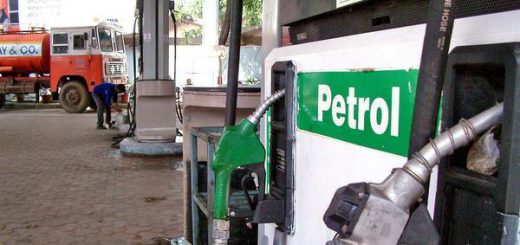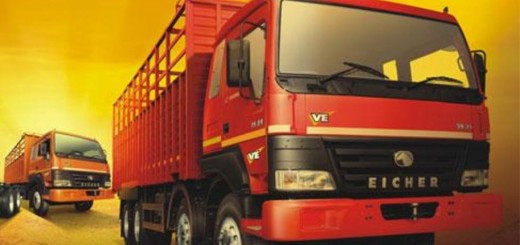Scrappage policy lap on commercial vehicles
The proposed policy is seen as a bid by the govt to prop up demand for automobiles. The proposed policy will seek to take polluting commercial vehicles off the roads.
New Delhi/Mumbai: India’s vehicle scrappage policy, which is awaiting its final clearance from the Union cabinet, would focus on eliminating the fleet of old polluting commercial vehicles plying on the country’s roads, said a senior government official.
“The policy has been finalized and we are waiting for the cabinet’s approval, which is expected soon,” said a second government official. Both the officials declined to be named.
The second official said the proposed policy would seek to revive the ailing commercial vehicle industry — a key barometer of economic activity and freight movement. “The idea is to take old, polluting ones off the roads as they are major contributors towards pollution.”
The policy would entail a manifold increase in the renewal of registration fees of vehicles older than 15 years to discourage the use of older polluting vehicles, including passenger vehicles, the official said.
The proposed policy is seen as an attempt by the government to boost automobile demand, which has been hit by weak consumer demand amid a slowdown in the broader economy. This economic slowdown has forced several companies to temporarily shut factories, lay off contract workers and offer hefty discounts to clear inventory.
In August, finance minister Nirmala Sitharaman proposed several steps to revive the automobile sector, including the scrappage policy, aimed at increasing production levels and capacity utilization at factories.
The medium and heavy commercial vehicle segment is the worst-hit following the creation of extra load-carrying capacity of trucks last year with the introduction of axle load norms. This was followed by a general slowdown in key sectors such as real estate, infrastructure, mining and others. According to the Society of Indian Automobile Manufacturers (Siam), wholesales or factory dispatches of medium and heavy-duty trucks fell over 41% year-on-year during April-November. During the same period, the commercial vehicle industry posted a 22% decline in sales.
Meanwhile, truck makers have resorted to offering heavy discounts to clear their inventory of Bharat Stage IV (BS IV)-compliant vehicles. Mint had earlier reported that the two largest commercial vehicle makers, Tata Motors and Ashok Leyland, have been offering heavy discounts of up to ₹8 lakh on 40-49 tonne trucks even as smaller companies toil for customers.
“While the automotive industry is still waiting for the vehicle scrappage policy, the draft guidelines on AVSF (authorized vehicle scrappage facility) by MoRTH (ministry of road transport and highways) are a welcome move to reduce in-use emissions and drive fleet modernization in India,” said a spokesperson for Tata Motors. “The guidelines outline clear direction for setting up authorized vehicle scrappage facilities, which will ensure environment-friendly recycling and disposal of vehicles and hazardous materials.”
The spokesperson said while guidelines for setting up of scrapping facilities will encourage replacement of older vehicles, they may also have to define tangible incentives for customers and regulatory norms for enforcing the disposal of older vehicles.
“In light of this, we will have to assess the impact of released guidelines in the current form on new vehicle demand. To achieve the end objective, there is a need to address the criteria to define end-of-life vehicles, incentives for customers and dismantlers, and a mechanism to ensure adherence,” added the Tata Motors spokesperson.
The success of the policy would, however, hinge on the incentives it would carry for buyers and manufacturers, a senior executive at a commercial vehicle maker said on condition of anonymity. The executive outlined the incentives as road tax exemption, reduction in the goods and services tax paid on new vehicle purchases, incentives on tradable scrap certificates and low interest rates/easy financing schemes on commercial vehicle purchases. Companies “cannot offer incentives beyond the discounts that are already at an all-time high”, said the executive.
The second government official said that after lengthy discussions the Centre said it would not offer any incentives in the new policy, but that states would forgo road tax to vehicle buyers against presentation of scrap certificates. “Incentives, if any, will have to be offered by the OEMs (original equipment manufacturers),” the official said. “The only form of incentive will be exemption from road tax (a state subject). Besides, there could be some discounts on purchase on a new vehicle upon showing the scrapping certificate.”
Stressing the reasons why the government should offer incentives to promote scrapping, Siam deputy director general Sugato Sen said, “Scrappage of old vehicles is expected to generate demand for new ones, thereby leading to additional sales for the auto industry as well as additional revenue for the government.”
Siam has recommended that dealers acquire old vehicles from owners and send them to designated scrapyards, which would buy these and issue tradable scrap certificates. The auto industry lobby has suggested a 15% cut in vehicle scrapping value for dealers in the value chain to not only retain their business interest, but also capitalize on their vast network.
Source: http://bit.ly/37j4aKm





Recent Comments